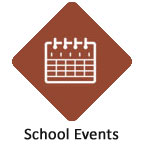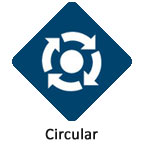
EXAMINATION PATTERN
Examination Pattern
PRE SCHOOL & PRE PRIMARY SCHOOL
New Linguistic Approach
We have adapted International Curriculum of teaching of language through Phonetics. It is a fun and child centred approach to teaching literacy through synthetic phonics. With actions for each of the 42 letter sounds, the multi-sensory method is very motivating for children and teachers, who can see their students achieve. This helps children build their reading capabilities early on. Children are also able to improve their English spelling and pronunciation which helps them in developing good communication skills.
Literacy Rich Environment (English and Hindi Language)
• Listening with concentration through AV modules
• Special emphasis on reading and writing skills through story books and pictures
• Learning letters and vocabulary through active conversation in the class
• Phonological awareness in explicit way through defined modules
• Play literacy games
• Show and Tell
• Circle Time
• Dramatization of stories
• Poem Recitation
• Picture Book Reading
Development of Numeric Skills (Mathematics)
• Conceptual understanding of numbers through number games
• Developing number sense through recognition activity in class
• Recognizing numerals through number blocks
• Learning linguistic structure of numbers through a drill
• Sorting size and measurement of objects of use like pencil, eraser etc
• Developing procedural fluency and counting through regular practice in class
• Using Mathematics Kit in Activity Room for learning with fun
Environment Studies
• Observing natural surroundings through nature walk
• Plantation of sapling on the day of child’s birthday
• Exploring surrounding, developing attitude for concern, every day, stories, poems or songs
• National and International days/festivals through special celebrations
• Teaching of all concepts of environment studies through real life examples and objects
Life Skills
• Showing Empathy through caring of the classmates
• Learning to be compassionate ,generous and concerned
• Learning the joy of sharing by sharing things
• Learning self-consciousness through personal conversation with teachers
• Overcoming fear, anxiety by giving them a free and safe zone to explore
• Upholding self-esteem by using respectful words with them
Artistic Expressions
• Colouring activities
• Identifying pattern in nature during outdoor visits and free hand drawing
• Fine hand holding and colouring for fine motor skills
• Drawing with precision
Internationalism in Curriculum
• With regular exchange visits to and from schools outside India, we try to expose our students to the global family. We truly believe that each individual is a global citizen and thus has a huge responsibility as a future leader of the World.
• Enriching knowledge about different parts of the world.
• Introduction and discussion of National Symbols, Important places through PPT
• Learning of basic greetings in different languages
• Traditional festival awareness and celebrations
• Special assemblies and dance presentations based on different countries.
• Learning through related fancy dress activity
Pretend Play
• Fun way to learn about various professions
• Purposeful, playful enactment and learning activities
• Expansion of knowledge through practical learning
• Enhancement of skills through individual participation
Thematic Assemblies
• Variety of themes to connect children to festivals and special celebrations and special days of the school
• Imbibing Respect for creator through variety of prayers and songs
• Freedom of expression though talks, experience sharing, songs, poems, dance or drama
Festival Celebrations
• Respect for diverse culture through dance, and songs
• Tradition awareness through discussions and showing modules
• Significance of festivals by arranging special days for them for celebrations
• Love for language and food through celebrating food days
Physical Education
• Physical and Mental growth through PEC activities
• Developing Leadership skills
• Enhancing Mind body coordination
• Inclination towards Team spirit
• Ability of Collaboration
• Spirit of Endurance
• A break to feel free and relaxed from monotonous routine.
PRIMARY SCHOOL (GRADE I to II )
Prescribed by the Directorate of Education, Govt.
• English
• Hindi
• Maths
• Environmental Studies
• Social Science
• Science
• Computer Science
• Music
• Dance
• Arts
• Sports
TEACHING – LEARNING STRATEGIES
Teaching learning strategies revolve around the concept of learning by doing in an open uninhibited environment that allows the freedom of thought and action.
SKILLSFocus is on building basic skills and also developing the sense of fair judgment and above all love and compassion for one and all.
MIDDLE SCHOOL ( GRADE III to VIII )
Prescribed by the Directorate of Education, Govt. of Delhi
• English
• Hindi
• Mathematics
• Science
• Social Science
• Computers
• Sanskrit / French
• General Knowledge
• Moral Science
• Music
• Dance
• Arts
• Sports
• Club Activity
• Personality Grooming
TEACHING LEARNING STRATEGIES
METHODS
Teachers are using a wide range of methods to promote interaction during regular class periods. These methods include traditional textbook method supplemented by discussions and practical work. Experimentation and lecture methods are mainly adopted for teaching General Science. Social science periods are made interesting by making use of project work and frequent use of timeline to correlate events. Language periods are blended with group discussions etc
COMPUTER AIDED LEARNING
This is done using Smart Class developed by EDUCATORS.
DEVELOPING INTELLECTUAL CLIMATE
In classes VI-VIII for bright and above average students’ strategy of brain storming is applied.
ACTIVITY BASED LEARNING
To facilitate learning, science and social science workshops, Performing clubs, DPSPUNO club and International Understanding Quiz are organized.
SKILLS
This includes holistic development of the child such as the mental, physical, emotional and psychic and spiritual development, scientific temperament amongst studies etc.
VALUE BASED EDUCATION
Every institution has an ideology which is the building block of its system. The motto of Mount Abu is “Aspiring new heights” which means every student aims to become:
• Progressive by nature
• Strides towards perfection
• Always aims high
• Tries to achieve his aims by honesty and integrity
SCHOOL EVALUATION PROCESS
Examination and Promotion Rules (For Classes I to II)
The academic year will have series of four evaluations including written assessment , class tests and orals on the basis of their class syllabus:
Evaluation I: April to June
Evaluation II: July - September
Evaluation III: October - December
Evaluation IV: January - March
Guidelines
• Regular classes will be held after each test and no holiday will be observed in between the test other than gazetted holidays.
• No re-test will be conducted at any level.
• Evaluation I and II will be held in the form of weekly test and evaluation III will be held twice a week.
• Absentees other than those on medical grounds will be marked absent in written assessment and no grades will be awarded.
• Leave on medical ground will be granted only getting it sanctioned in advance along with medical certificate & medical fitness certificate should be submitted while rejoining the school.
Examination and promotion rules (For classes III to VIII )
1. TERM I includes Periodic I & II (April- August) and Half yearly (Sept).
2. TERM II includes Periodic III &IV (Oct-Feb) and Annual Examination (March).
Guidelines of Periodic I and II
• Periodic I and II will be conducted for 25 marks for the Duration of 1:00 hour in the form of weekly tests and will be converted into 10 marks
Guidelines of Half yearly and Annual Examination
• Half Yearly Examination (Mid Sept) and Annual Exam (Mid Feb) will be conducted for 60 marks for the Duration 3:00 hours and will be converted into 30 marks in half yearly & 30 marks in annual exam.
• 60% weightage of the two terms+ 20 marks (first, second, third and fourth periodic test) +10 marks (Notebooks maintenance) + 10 marks (Enrichment activities) with total 100
--FIRST TERM---I—SECOND TERM-----
(80) (80)
| I P & II P | S.E. & N.B. | H.Y | III P & IV P | S.E. & N.B. | ANNUAL | TOTAL |
|---|---|---|---|---|---|---|
| 10 | 10 | 100 | 10 | 10 | 100 | 200 |
• 50% of the entire syllabus will be covered till half yearly exam.
• Annual Exam syllabus includes 25% syllabus left , 10% from each periodic and 15% weightage of half yearly will be added in annual cumulative result.
• Co-scholastic activities (Visual and Performing arts, Physical Education & Work Education) will be graded on 5 point grading scale (A to E).
• Discipline (Attendance, Sincerity, Behaviour, Values) will also be graded on 5 points scale (A to E)









